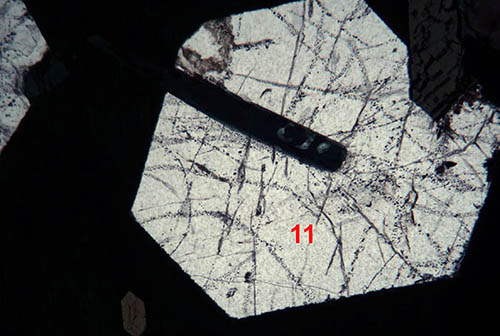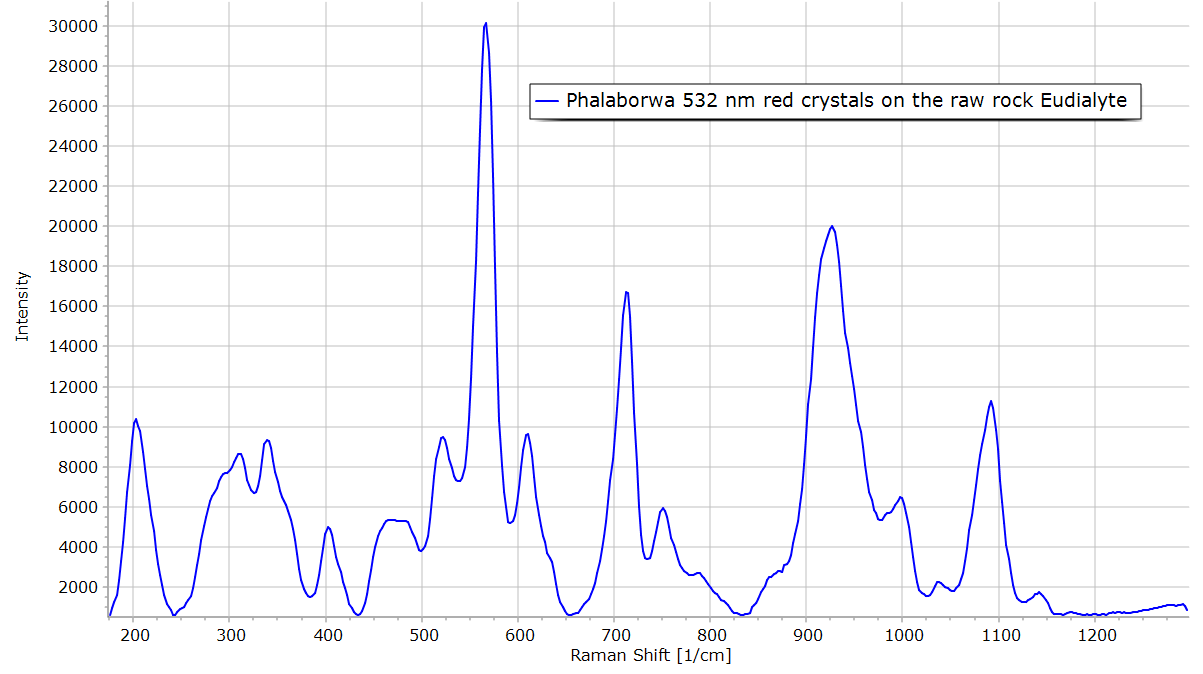Raman Rock section from Phalaborwa.
![]() Raman Main Page
See the
fluorescence of this section.
Raman Main Page
See the
fluorescence of this section.
|
|
|
View of the section in plane polarized transmission. Dark crystal labeled 1 is aenigmatite, spectrum is given below. This mineral is not completely opaque but appears dark brown as can be seen on the center right of this section. Crystal 2 is aegirine. Region marked 3 is arfvedsonite. The needle crystals of area 4 are titanite, (sphene). The Raman spectra recorded on each of those 4 areas can be seen below.
|
|
|
|
|
|
|
|
|
|
A wider view of the section. Yellow crystal labeled 5 is lamprophyllite. Dark opaque area 6 has not been identified with the Raman spectrum below. The spectrum has some similarities with ilmenite but too much differences remain to be certain of the identification.
|
|
A wider view of the section. Yellow crystal labeled 5 is lamprophyllite. Dark opaque area 6 has not been identified with the Raman spectrum below. The spectrum has some similarities with ilmenite but too much differences remain to be certain of the identification.
|
|
|
|
Not yet identified. |
|
Area 7 is small diopside crystals |
|
|
|
The diamond-shaped crystals of area 8 are titanite (sphene). Zone labeled 9 is diopside.
|
|
|
|
The clear transparent crystals of this section are mostly nepheline as illustrated in the spectrum on the left. Area 11 is a basalt hexagonal section in a nepheline crystal.
|
|
|
|
14 is aegirine or aegirine-augite mineral. See spectrum on the top of this page. |
|
Crossed polar view of another part of the section. 15: ilmenite. 16: nepheline.
|
|
|
|
|
|
Fluorescence of the sodalite. Click for the fluorescence page. Raman spectrum of sodalite below.
|
|
|
|
All the minerals of the rock have not been found in the section described. The red mineral that can be seen in the rock whole picture on the left is eudialyte as indicated by the Raman spectrum below. |
|
|


















 17, 18 and 19: nepheline.
17, 18 and 19: nepheline.


